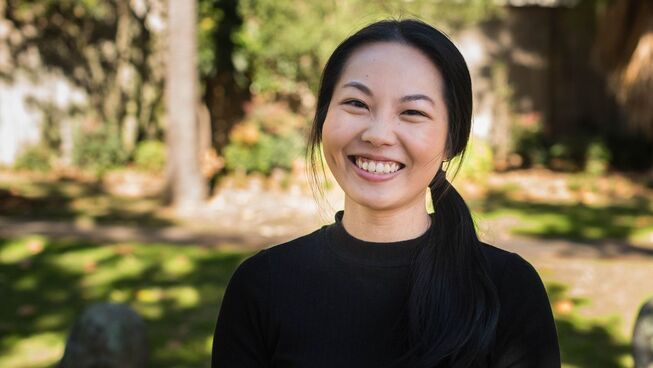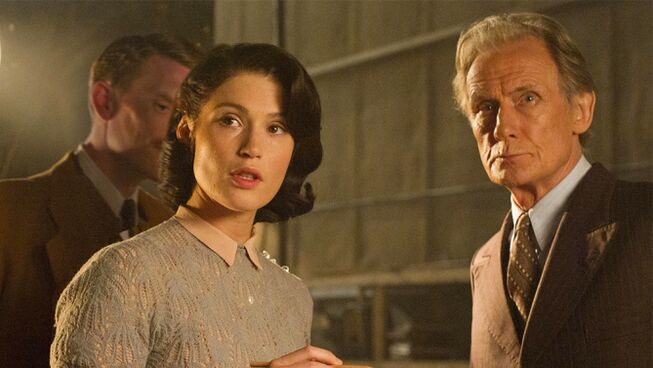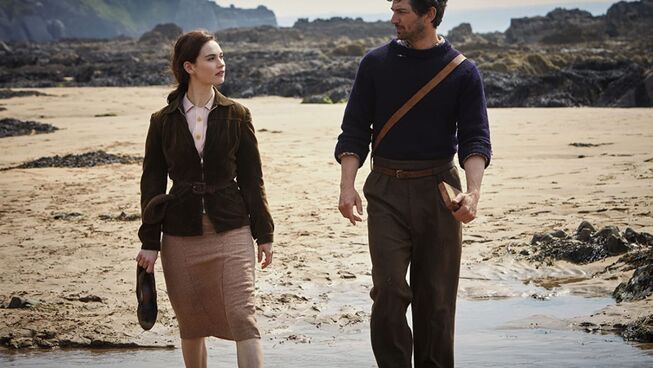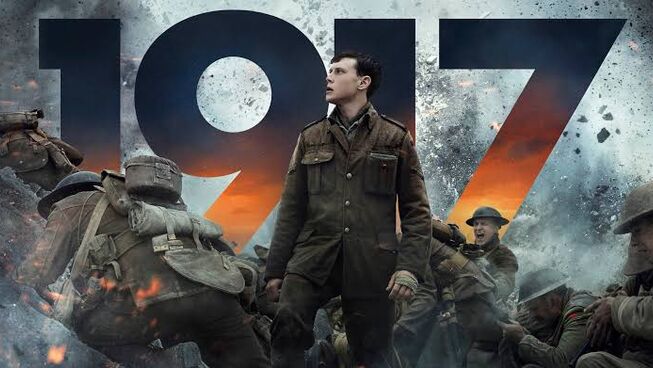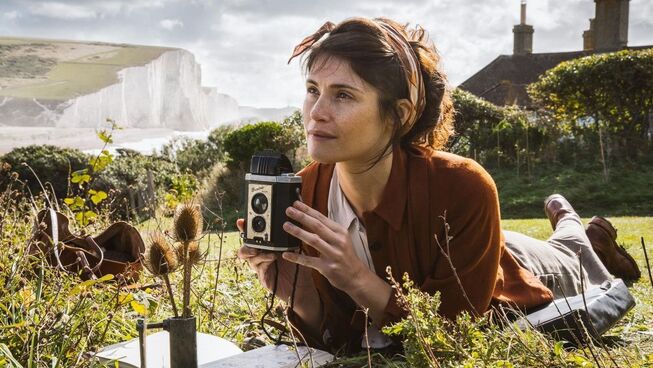
2.5 out of 5 stars
Folklore thrives in imagination. When reality causes inexplicable grief and suffering, humans rely on stories to find hope. Countless stories from the Second World War continue to be shared in movies. Some as lessons from history and others as beacons of light to anyone who finds themselves living in times of similar uncertainty. Some may argue that this human tendency for hope is what gives us the strength to endure extreme pain. This anguish can come in the form of a broken relationship or of losing a loved one. Yet, it can also manifest itself as the courage to invite others to share in this burden.
Summerland is the directorial debut of screenwriter Jessica Swale. This wartime drama is set in the time during the German bombing campaign against the United Kingdom during World War Two called The Blitz. Alice Lamb (Gemma Arterton) is a writer who finds safety in the solitude that exists separate from people. In her world of isolation, she manages to find security in devoting her life to researching the scientific explanations for mythical wonders.
However, her isolated lifestyle in Dover is interrupted when a young evacuee from London, Frank (Lucas Bond), is thrust into her care as part of the war effort. Their unlikely and eventually heart-warming relationship develops into one of the most noteworthy aspects of the film. It is through Frank’s curiosity and open displays of emotion that encourage Alice to revisit her affections from the past.
Swale has managed to create characters that beautifully evolve through each frame of the film. These rich and vibrant personalities are portrayed with great depth and conviction by Arterton and Bond. Viewers will find themselves drawn into the allure of the lasting friendship which forms between these two individuals. However, what begins as a rich development of these roles falls victim to an overly ambitious second half. One that will leave the audience with a scrambling sensation that attempts to force the viewer to accept a happy ending. One that many may not complement the rest of the narrative.
Regardless of the comfort that viewers may have about the conclusion of the film, Summerland will challenge all who see it to search for their own ‘special place.’ Whether it is a child-like belief in folklore or waiting for a miraculous coincidence, Jessica Swale’s story will cause many to seek out this existential aspect in their lives. Even though her tale will leave them without much guidance as to where they may find it outside of wishful thinking.
REEL DIALOGUE: Hoping in something more than a mirage
Hope can be as elusive as a mirage in the sky. And yet, both protagonists in Summerland are drawn to hope in a fairytale. Especially when the realities of life dash their faith in other people to pieces.
This screenplay proves that humans are complex. Showing us how we can let people down and hurt others even when we try to act in their own best interest. Perhaps the answer to this conundrum is to not to place our hope in humanity, but in something bigger than ourselves.
We can start with this discussion of hope and how it impacts our lives, but it will not take too long before it extends beyond this physical existence. Summerland does open the door to the consideration of hope after this lifetime, specifically, if there is life after death. Many people may find that their answers are a mixture of folklore and wishful thinking. While, if one is to consider the hope that is found in the Bible, it does show that there is one person who we can rely on in this life and the next, Jesus.
Brothers and sisters, we do not want you to be uninformed about those who sleep in death, so that you do not grieve like the rest of mankind, who have no hope. For we believe that Jesus died and rose again, and so we believe that God will bring with Jesus those who have fallen asleep in him. – 1 Thessalonians 4:13-14
